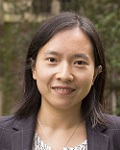2020
He Bian
- Assistant Professor
- Princeton University

Abstract
Formulaic literature (fangshu) constitutes one of the largest categories of printed texts in late imperial China, yet historians have largely considered recipes as of secondary importance to medical theory. Upon scrutiny, the seemingly simple act of sharing medical recipes in print can be parsed into a variety of sub-genres that evolved in time. In Ming-Qing times, medical recipes functioned as coveted cultural capital that enabled individuals to express their visions for personal and social well-being, opening up new spaces for historical interpretation. In this book project I will argue that the techniques of individual and social life documented in those pages should be considered an essential feature of Qing political culture during the long eighteenth-century (1680-1820).

